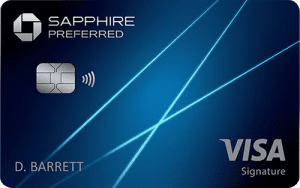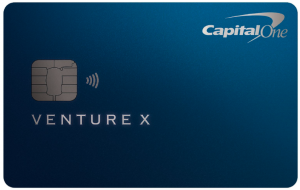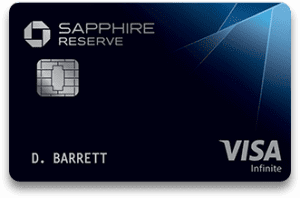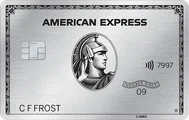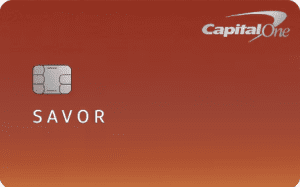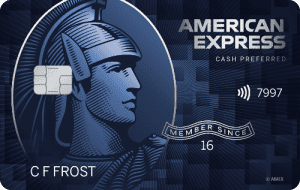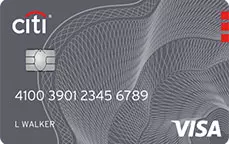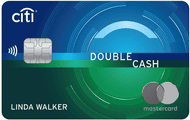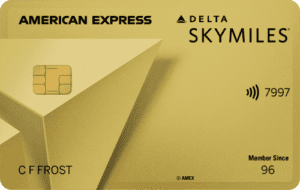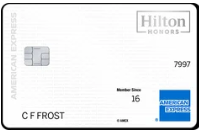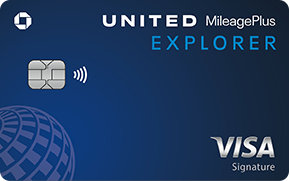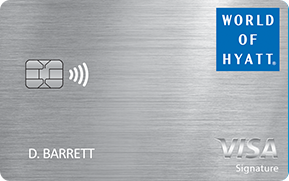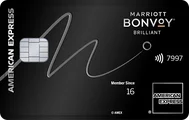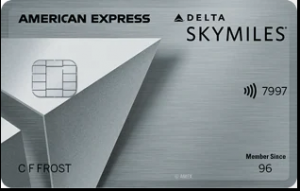Table Of Content
Cash Back vs. Points Credit Cards: Main Differences
Many credit card types offer different types of rewards for customers. Some allow one to earn cash back when spending money on certain categories and businesses.
On the other hand, some credit cards allow their customers to accumulate points on most or all of their purchases. They can later exchange those points for different types of benefits.
Despite some similarities, there are a number of significant differences between cash-back cards and those cards where customers can accumulate points. Here is the list of some of those differences:
- Redeeming Options
If you have a cashback card when you spend money in the category where cashback is offered, you can redeem cash back for a statement credit.
Some cash-back cards offer a fixed reward if you spend a certain amount on general purchases. On the other hand, in the case of points cards, you need to redeem those points for some reward, whether a discount, voucher, or some item.
- Value
Usually, the value can get on cashback compared to is lower than the value you can get on a point rewards card for the same amount you spend. This is because credit card companies prefer you to earn point rewards and not cash back.
The reason is that point rewards are cheaper for companies – they can buy these rewards in bulk (as part of agreements with retailers) and pay less. It doesn't mean it's bad for you – usually, the consumer price of the rewards you can get is higher than what you can get with cash back card.
- Restrictions and Limitations
With cash-back cards, you earn cash back when you spend in certain categories, but there’s usually a cap on how much cash back you can earn. You can check your card’s specific limits on your bank’s or issuer’s website.
On the other hand, points cards typically let you earn points on all your purchases with no limit on how much you can earn.
- Rewards Expiration
In the case of cash-back cards, their rewards have no expiration date. This is because once you complete the transaction, you qualify for cash back, which the bank or credit card company will eventually credit to your account if you choose.
After that, you can spend that money, but if you decide to retain it, there is no expiration date, and the money is treated as the rest of the balance in your accounts. On the other hand, points usually have an expiration date, mostly ranging from 1 to 3 years; the exact timeframe depends on the financial institution in question.
- Annual Fee
Cash-back credit cards tend to be cheaper than point rewards cards. Some point rewards credit cards such as Chase Sapphire Reserve® card or the Platinum Card® from American Express require a pretty high annual fee, due to the massive perks they offer.
When it comes to annual fees, consider is how many credit cards you actually need.
Cash Back Credit Cards: Pros And Cons
There are some reasons why some customers might prefer cash-back credit cards over points cards. Despite all of the upsides of cash-back credit cards, it is crucial to recognize that just like any other banking product, they have some downsides as well.
Here are some of those reasons:
Pros | Cons |
|---|---|
Cash Rewards | Limitations |
No Expiration Date | Lower Value |
Ease Of Calculation |
- Cash Rewards
With cash-back cards, customers do not have to browse through the rewards catalog to identify the product or service they would redeem their points. All customers need to know is which categories they need to spend money on to earn some cash back.
After some time, they will get some percentage of those purchases back into their account through a statement credit or direct deposit. They can then use cash for whatever purpose they want, without any limits on where to spend this money.
- No Expiration Date
Cash back rewards earned through purchases will always eventually end up on the customer’s account. In some cases, it might be done within a couple of business days, while with some banks, it might take up to a month or more.
However, they have no expiration date, even if a customer decides not to spend the cashback money on purchases.
- Ease Of Calculation
Cash back cards pay a fixed percentage of purchases made at certain businesses. Consequently, it is easier for customers to calculate the value of rewards they earn on a given credit card
- Limitations
One of the important downsides of using cash-back credit cards is the fact that with some of those cards there are rotating categories, which means you can not earn rewards with all of your purchases.
Also, most cash-back cards have limitations on the maximum amount of cash back you can earn every month/quarter.
For example, customers of Blue Cash Everyday® Card from American Express earn 3% Cash Back at U.S. supermarkets / U.S. online retail purchases/ U.S. gas stations on up to $6,000 per year in purchases, then 1%.
- Lower Value
For the same amount of money you spend, the value of the rewards you can get with point rewards cards is much higher than the amount of cash back you earn on the same amount.
Whether it's free flights, upgraded, free nights at hotels, or gift cards – in most cases, they are worth more for the consumer than cash back.
Point Rewards Credit Cards: Pros And Cons
Points credit cards also offer some pros and cons to consider. Here are the main things you should know:
Pros | Cons |
|---|---|
Massive Perks | Points Can Expire |
No Limitations | Redeeming Limits |
Generous Rewards Ratio | Annual Fee |
- Massive Perks
Some point rewards credit cards offer massive perks that you can't get with a cash-back card.
From annual travel credit to lounge access, there are a bunch of expensive rewards you can get only with a point rewards card.
For example, the Delta SkyMiles® Reserve Credit Card offers complimentary access to The Centurion® Lounge when you book your Delta flight with your Reserve Card.
- No Limitations
Unlike cash-back cards, with points cards, you can earn rewards with most if not all of your purchases, depending on the specific credit card.
In most cases, there are no rotating categories or monthly limit to the rewards you can earn.
- Generous Rewards Ratio
Some travel credit cards might offer 2x, 5x, or even 10x points when you spend them on air tickets, hotels, restaurants, and some other locations. This can be especially useful if you are a frequent traveler. welcome bonus are also very generous.
For example, the Marriott Bonvoy Brilliant™ American Express® Card offers a welcome bonus of 95,000 Marriott Bonvoy points after spending $6,000 within the first 6 months of card membership..
- Points Can Expire
One major downside with points credit cards is that, in most cases, you do not redeem those points; they will expire within 1 to 3 years, depending on the financial institution.
As a result, if you do not redeem those on time, you will lose any opportunity to get any benefits from your purchases.
- Redeeming Limits
With cash-back cards, you can use your cash-back money for any purpose, from paying utility bills to buying groceries. This is not the case will most point credit cards.
Usually, your choices are limited to the points redemption options offered by the bank or credit card company.
For example, you can't redeem United points for Delta flights.
- Annual Fee
Despite the significant value that rewards cards can provide, carrying them can be costly. Some of the top rewards credit cards have significant annual fees. For instance, the annual fee for the Capital One VentureX card is $395.
Some points-based cards may take longer to “break-even” with fees that high.
Sign Up for
Our Newsletter
and special member-only perks.
Sign Up for
Our Newsletter
and special member-only perks.
When May It Make Sense To Choose A Point Rewards Card?
Choosing the right card for your needs is not an easy task. You should smartly compare and understand the in and out of the card, as well as your spending habits.
There are several cases when it might make sense to get a point rewards credit card instead of a cashback card. Here are some of the scenarios:
- You are a frequent traveler – If you frequently travel for business or leisure, getting a points credit card might be a good idea, which offers the opportunity to earn extra points on your travel expenses. In fact, with some credit cards, you can earn 5x and 10x points on air tickets and hotel expenses. If this is what you do regularly, you have to spend this money anyway, so it might be better to earn some rewards in return.
- Loyal to a specific hotel/airline: A hotel or airline card may be quite beneficial to you if you are a loyal customer of a specific hotel or airline.
- Looking for special perks – if you need some specific perks that only a point rewards credit card can offer, you'll probably prefer a point rewards card.
Card | Rewards | Bonus | Annual Fee | Chase Sapphire Preferred® Card | 2X – 5X
5x total points on travel purchased through Chase Travel, 3x points on dining, online grocery purchases and select streaming services. 2x on other travel purchases. Plus, earn 1 point per dollar spent on all other purchases.
| 60,000 points
60,000 bonus points after you spend $4,000 on purchases in the first 3 months from account opening
| $95
| Review |
|---|---|---|---|---|---|
Capital One Venture X Rewards | 1X – 10X
10 miles per dollar on hotels and rental cars when booking via Capital One Travel, 5 miles per dollar on flights and 2 miles per dollar on all eligible purchases
| 75,000 miles
75,000 bonus miles once you spend $4,000 on purchases within the first 3 months from account opening
| $395 | Review | |
Chase Sapphire Reserve® | 1X – 10X
5X total points on air travel and 10X total points on hotels, car rentals and dining when you purchase through Chase Ultimate Rewards®, immediately after earning your $300 annual travel credit. Also, earn 3x points on dining at restaurants and travel (after meeting the $300 travel credit), then 1x points per dollar spent on all other purchases.
| 60,000 points
60,000 bonus points after you spend $4,000 on purchases in the first 3 months from account opening
| $550 | Review | |
The Platinum Card® from American Express | 1X – 5X
5X points on up to $500,000 spent on directly-booked airfare and flights and prepaid hotels booked through American Express Travel (per calendar year), 2X points on prepaid car rentals through American Express Travel and 1X points on all other purchases
| 80,000 points
80,000 Membership Rewards® points after you spend $8,000 on purchases on your new Card in your first 6 months of Card Membership
| $695 (Rates & Fees) | Review |
When May It Make Sense To Choose A Cash Back Card?
Getting a points card might not be the right choice for everyone. There can be several cases when cash back card might be a better option:
- Cash back on specific categories – If the cash back is offered on categories where you spend most of your money, this card might be worth considering. For example, if a credit card offers 5% cash back on all grocery and gas purchases and you spend money on those categories daily, it might make sense to choose that credit card instead of a points card.
- You prefer cash rewards – Some people have not decided where to spend their rewards, so some of them prefer cash because they can spend it in any category they choose. So if you are one of them and do not want to bother with redeeming points, getting a cash-back card might be a good solution.
- You prefer low-cost credit cards – cash-back cards tend to be cheaper, and if you prefer to avoid an annual fee, a cash-back credit card may be the right choice for you.
With most of the best cash-back cards, you can find generous welcome bonuses and decent cash back rewards:
Card | Rewards | Bonus | Annual Fee | ||
|---|---|---|---|---|---|
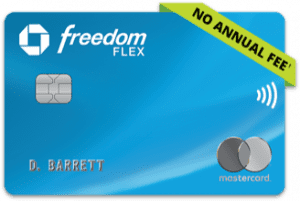 | Chase Freedom Flex℠ Card | 1-5%
| $200
| $0 | Review |
Capital One Savor Cash Rewards Credit Card | 1% – 4%
unlimited 4% cash back on dining, entertainment, and popular streaming services, 3% at grocery stores and 1% on all other purchases.
| $300
$300 cash bonus once you spend $3,000 on purchases within 3 months from account opening
| $95 | Review | |
Blue Cash Preferred® Card from American Express | 1-6%
6% cash back at U.S. supermarkets (up to $6,000 per year in purchases, then 1%) and selected U.S. streaming subscriptions, 3% cash back on transit
and U.S. gas stations, 1% cash back on other purchases
| $250
$250 statement credit after you spend $3,000 in purchases on your new Card within the first 6 months
| $95 ($0 intro for the first year), Rates & Fees | Review | |
Costco Anywhere Visa® Card by Citi | 1-4%
4% cash back on on eligible gas and EV charging purchases for the first $7,000 per year and then 1% thereafter, 3% cash back on restaurants and most travel purchases, 2% cash back at Costco and Costco.com, 1% cash back on all other purchases
| None
| $0 ($60 Costco membership fee required) | Review | |
Citi® Double Cash Card | 1% – 2%
2% cash back rewards rate – 1% every time you swipe and another 1% upon payment.
| $200
$200 cash back after spending $1,500 on purchases in the first 6 months
| $0 | Review | |
Discover it® Cash Back | 1-5%
5% cashback on up to $1,500 in rotating category purchases each quarter when you activate the bonus category (then 1%), as well 1% percent cash back on all other purchases
| Cashback Match
All cash back earned at the end of the first 12 months is matched.
| $0 | Review |
Redeem Rewards vs. Redeem Cashback
When it comes to redeeming rewards, cash back cards might have several options to redeem cash back for rewards, depending on the financial institution in question.
Here it is also worth keeping in mind that some banks have a specific minimum amount you can redeem; however, this is not the case with all financial institutions.
In the case of points credit cards, you need to visit the online or mobile application of the issuer and choose from the list of rewards for which you can redeem your points. Some of the common rewards to redeem your points are:
For example, with the Amex membership club, you can redeem your Amex points to get ticket events and transfer points to airline partners.
Here are some of the most common options of both options:
Cash Back Redemption Options | Point Rewards Redemption Options |
|---|---|
Statement credits | Discounts or credits on flight tickets and hotels stay |
Cash back deposited on your bank account | Gift cards and Online shopping vouchers |
Receiving a check by mail | Concerts, sport events, theater shows |
Why Do Hotels & Airline Cards Prefer Points Over Cashback?
Hotels and airline cards prefer points over cashback because, with points, the bank or credit card company sets terms under which they can be redeemed.
To illustrate this better, let us consider two examples. First, suppose you have earned $500 in cashback over a year. In this case, usually, you can redeem that for statement credit or direct deposit for one of your accounts. From this point onward, you can use this money for any purpose, including booking flights with Delta miles and paying for hotels with Marriot Bonvoy Points.
This will not be the case if you have 50,000 credit card points. In this case, the bank and credit card company has greater flexibility. They can negotiate with airlines or hospitality companies significant discounts on some trips and locations on behalf of their credit card clients.
These financial institutions offer point redemption options for specific flights and hotels. By carefully researching these options and planning your trips accordingly, you can often get more value from points than you would from a cash-back card.
Card | Rewards | Annual Fee | Delta SkyMiles Gold American Express Card | 1X – 2X
2X miles on delta purchases, at restaurants worldwide (including take-out and delivery in the U.S) and at U.S. supermarkets, and 1x miles on all other eligible purchases
| $150, $0 intro first year (Rates & Fees)
|
|---|---|---|---|
Citi® / AAdvantage® Platinum Select® World Elite Mastercard® | 1X – 2X
Earn 2 AAdvantage® miles for every $1 spent at gas stations and restaurants, 2 AAdvantage® miles for every $1 spent on eligible American Airlines purchases and 1 AAdvantage® mile for every $1 spent on other purchases. Earn 1 Loyalty Point for every 1 eligible AAdvantage® mile earned from purchases.
| $99 (waived for the first 12 months)
| |
Hilton Honors Card from American Express | 3X – 7X
7X Hilton Honors Bonus Points for each dollar of eligible purchases charged directly with hotels and resorts within the Hilton portfolio, 5x points at U.S. restaurants (including takeout and delivery) U.S.supermarkets, U.S. gas stations and 3x points for each dollar on other eligible purchases
| $0 (Rates & Fees) | |
United Explorer Card | 1X – 2X
2x per $1 spent on United purchases, hotel accommodations, restaurants & eligible delivery services and 1x per $1 spent on all other purchases
| $95 ($0 first year) | |
The World of Hyatt | 1X – 4X
4 Bonus Points per $1 spent on purchases at all Hyatt hotels. Plus, 5 Base Points from Hyatt per eligible $1 spent for being a World of Hyatt member. 2x Bonus Points per $1 spent at restaurants, on airline tickets purchased directly from the airline, local transit and commuting as well as fitness club and gym memberships. Plus, earn 1 Bonus Point per $1 spent on all other purchases.
| $95 |
How Do Reward Points Change Between Issuers?
Credit card rewards points are not identical in terms of value and usability with different financial institutions.
For example, if you have 60,000 credit card points with Bank of America, that has a value of $600 when redeemed. On the other hand, 60,000 credit card points with Chase Bank are worth $600 when redeemed for cash, but if you redeem it for travel rewards, you can get $750 in benefits.

